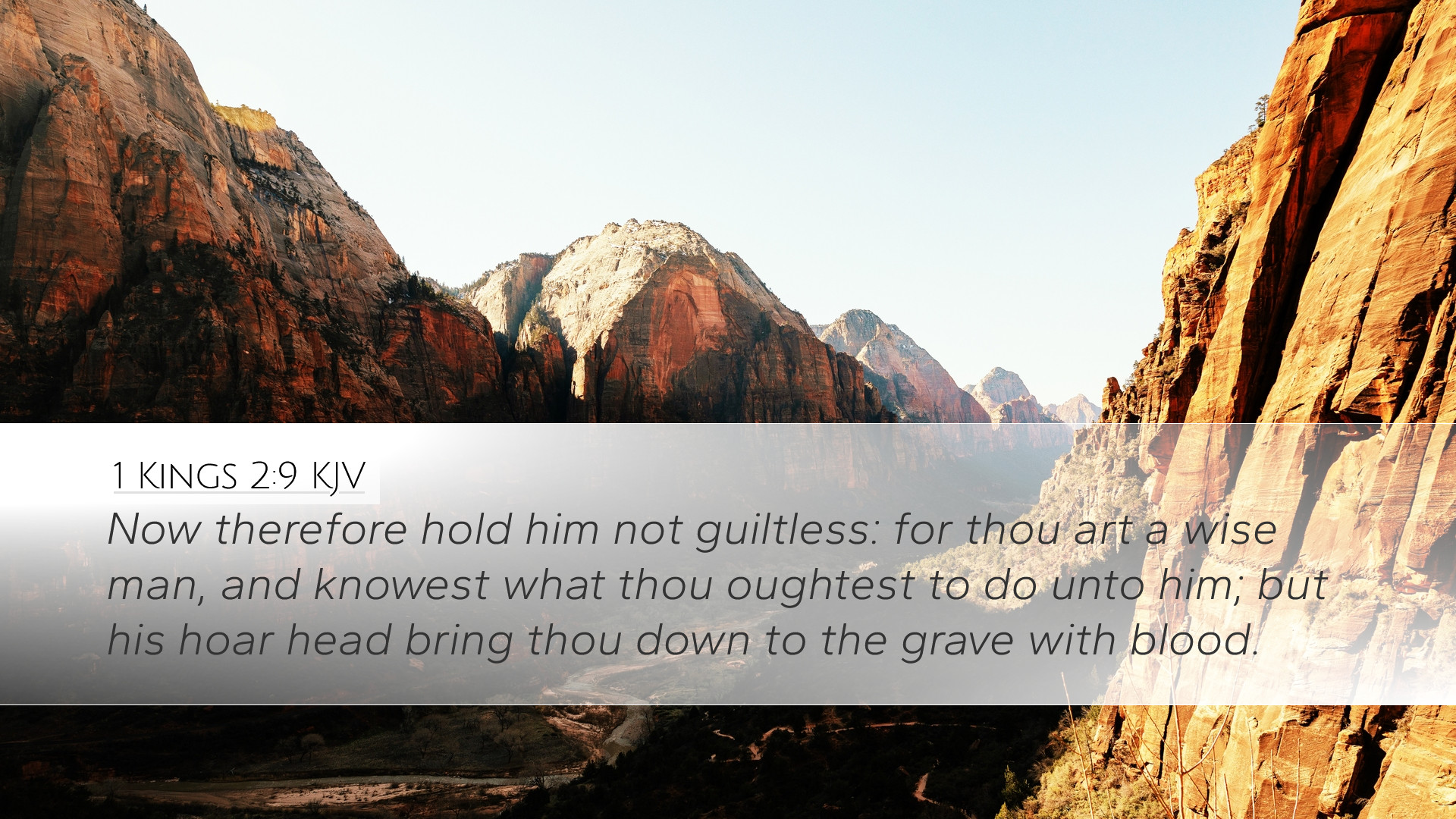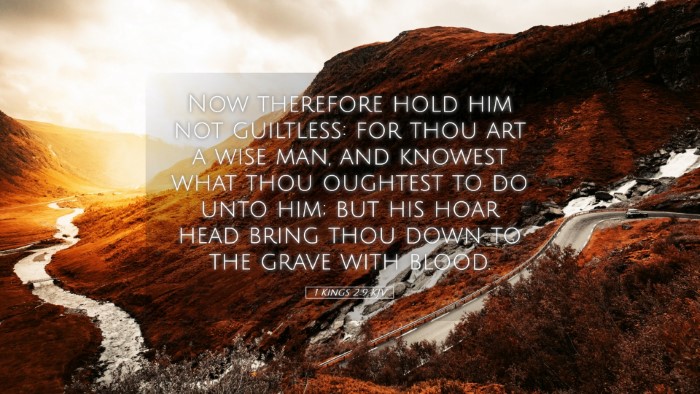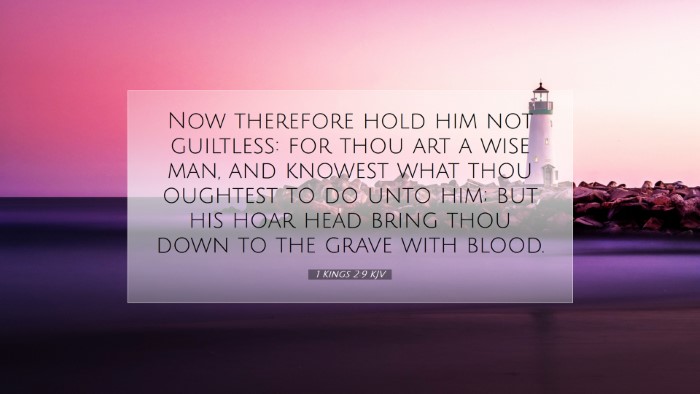Commentary on 1 Kings 2:9
Bible Verse: “Now therefore hold him not guiltless: for thou art a wise man, and knowest what thou oughtest to do unto him; but his hoar head bring thou down to the grave with blood.”
Historical Context
This verse appears at a pivotal moment in the transition of power from King David to his son Solomon. David, in his dying instructions, offers counsel to Solomon regarding his kingdom and the individuals who may pose threats to his reign. This counsel is vital as it underscores the importance of wisdom and discernment in leadership.
Interpretation of the Verse
David’s clear message to Solomon illustrates both the gravity of kingship and the necessity of justice. Throughout the biblical narrative, the duty of a king included not only governing wisely but also administering justice fairly. Here, David explicitly warns Solomon about the treachery of Joab, urging him to act decisively in dealing with this past commander who had blood on his hands.
Insights from Matthew Henry
Matthew Henry emphasizes the notion of accountability in leadership. He states that all leaders must recognize their responsibilities towards those they govern. Joab had been a pivotal figure in David's army but had committed acts that contravened the principles of justice and loyalty. Henry points out that Solomon is to exercise wisdom in executing justice, reflecting the balance between mercy and righteousness.
Insights from Albert Barnes
Albert Barnes discusses the character of Joab, noting his mixed legacy of loyalty and rebellion. He affirms that Joab's actions, including the murders of Abner and Amasa, left Solomon no choice but to consider him a threat to the stability of his reign. Barnes posits that Solomon's decision to deal with Joab reflects a broader principle of managing one's kingdom—eliminating threats and securing peace. This incident illustrates the necessity of making tough decisions while ruling, showing that wisdom in governance can require painful resolutions.
Insights from Adam Clarke
Adam Clarke provides a detailed analysis of the textual implications in this verse. He points out that the phrase “hold him not guiltless” can be interpreted as a call for justice that requires not only the punishment of guilt but also the establishment of a moral order. Clarke highlights that the “hoar head” mentioned symbolizes experience and wisdom, yet it should not protect one from the consequences of wrongdoing. Clarke also notes that this command implies a deep sense of integrity, with the expectation that Solomon will not only understand the complexities of his predecessor's legacy but also act in a manner that reflects divine justice.
Theological Themes
- Accountability: Leaders are called to account for their actions and those of their predecessors. The weight of decision-making rests on wisdom and ethical integrity.
- Justice: The biblical call for justice is evident; a leader must navigate complex moral landscapes that sometimes require the application of severe consequences for past sins.
- Mercy vs. Justice: The challenge of balancing mercy with justice is profound, and this narrative urges leaders to discern when to act with compassion and when to execute justice.
Applications for Pastors and Theologians
For pastors and church leaders today, 1 Kings 2:9 serves as a profound reminder of the responsibilities inherent in leadership. It illustrates the need for discernment, the understanding of justice, and the courage to act decisively. In ministering to their congregations, leaders may face situations that require them to confront issues of integrity, morality, and the past actions of individuals within their churches.
The narrative speaks to the importance of not allowing past transgressions to go unaddressed, especially when they disrupt the peace and unity of the body of Christ. Churches, much like kingdoms, may grapple with internal divisions, and this verse provides a biblical framework for addressing grievances in a way that prioritizes both justice and truth.
Conclusion
In summary, 1 Kings 2:9 encapsulates essential principles of leadership, justice, and wisdom. The insights provided by public domain commentaries affirm the need for leaders to remain vigilant, accountable, and compassionate as they navigate the realities of governance. As adherents to the scripture, we are called to reflect on these themes, applying them thoughtfully in our own lives, ministries, and communities.


